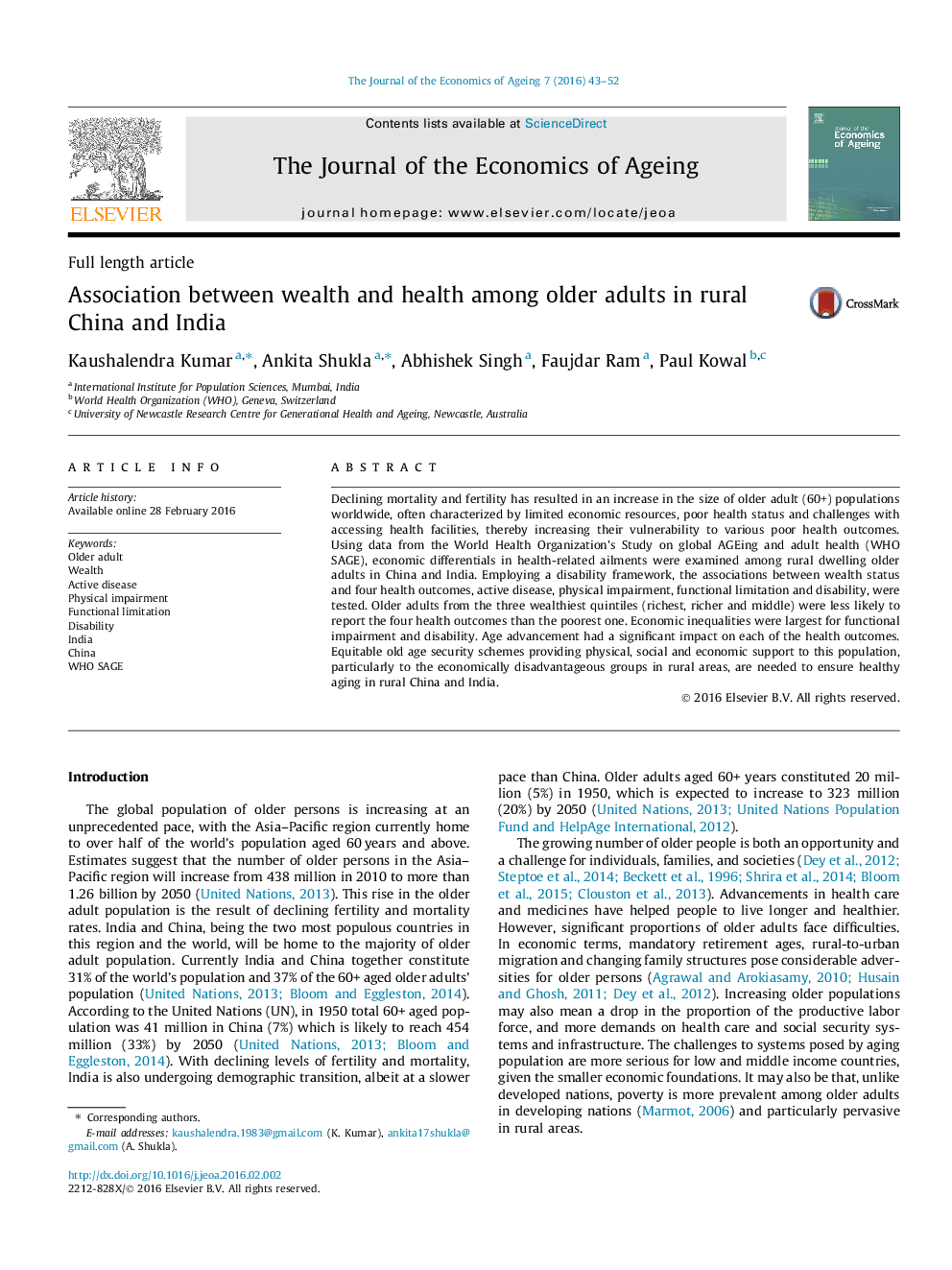| Article ID | Journal | Published Year | Pages | File Type |
|---|---|---|---|---|
| 957813 | The Journal of the Economics of Ageing | 2016 | 10 Pages |
Declining mortality and fertility has resulted in an increase in the size of older adult (60+) populations worldwide, often characterized by limited economic resources, poor health status and challenges with accessing health facilities, thereby increasing their vulnerability to various poor health outcomes. Using data from the World Health Organization’s Study on global AGEing and adult health (WHO SAGE), economic differentials in health-related ailments were examined among rural dwelling older adults in China and India. Employing a disability framework, the associations between wealth status and four health outcomes, active disease, physical impairment, functional limitation and disability, were tested. Older adults from the three wealthiest quintiles (richest, richer and middle) were less likely to report the four health outcomes than the poorest one. Economic inequalities were largest for functional impairment and disability. Age advancement had a significant impact on each of the health outcomes. Equitable old age security schemes providing physical, social and economic support to this population, particularly to the economically disadvantageous groups in rural areas, are needed to ensure healthy aging in rural China and India.
